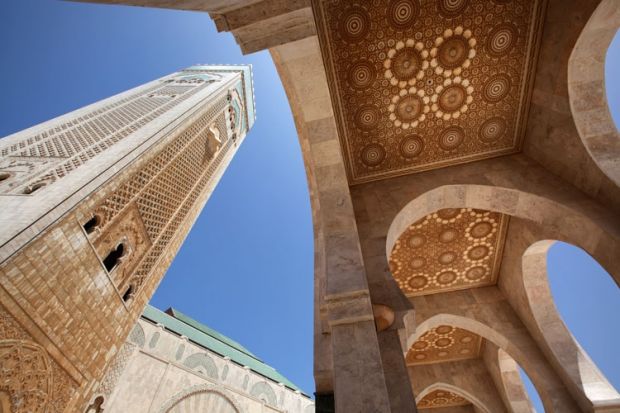While they were still colonies, said Mohamed Ben-Madani, editor of the peer-reviewed Maghreb Review since 1976, it was “hard for American and British scholars to study Algeria, Morocco and Tunisia, because they were deliberately prevented from doing fieldwork by the French establishment”.
Independence for the nations led to a good deal of major work by British-based researchers such as Ernest Gellner and Albert Hourani, but this “declined after that great generation died off and was not replaced. There is much less work being done in Britain now than in the 80s and 90s.”
An independent scholar and broadcaster, Dr Ben-Madani set up the Maghreb Studies Association in 1981. This now has about 150 members, but only 30 of them are in Britain (mainly PhD students) as fees and visa restrictions have significantly restricted the numbers of postgraduates from North Africa studying in the UK.
When the Arab Spring broke out at the end of 2010, therefore, there was a notable lack of British academics with a detailed up-to-date knowledge of regional developments.
This is only one of the reasons, in Dr Madani’s view, why we need more research on a part of the world which is “becoming closer, and more important strategically, to Europe”.
“The EU is forging greater links and putting in greater investment in the Maghreb,” he said. “Much more archival material is becoming available and the local universities are much more liberal than they were.”
In order to promote this cause, he has been organising an annual conference since 1977. This year’s, held at St Antony’s College, Oxford, on 24 and 25 June, is exploring “Colonial Heritage in the Middle East and the Maghreb”.




